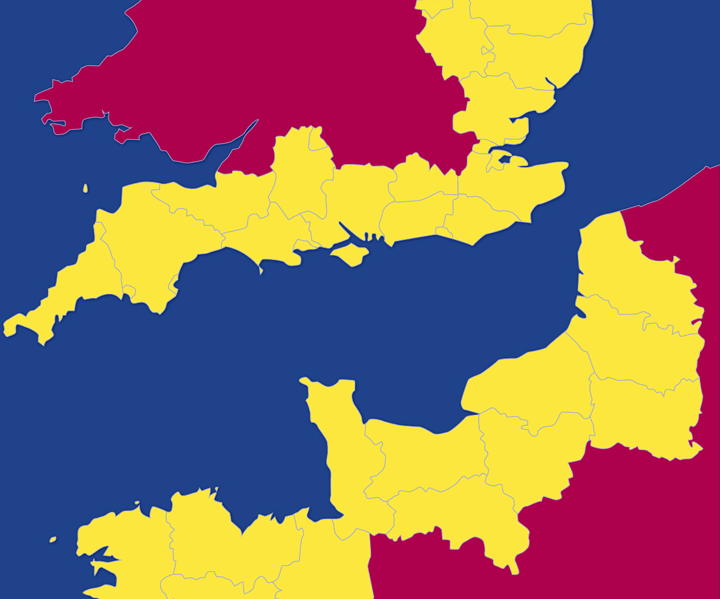Interreg FCE – Funding Cross-Channel Collaboration
Cross-Channel project funding up for grabs
WHEN establishing the foundations for a chemical engineering project, a crucial challenge facing project leaders is resourcing – in particular, finding a grant or funding which best fits their objectives in order to achieve optimum results.
Interreg FCE is a €315m (US$375m) funding programme co-financed by the European Regional Development Fund (ERDF). It looks to foster economic development in France and England’s border regions through supporting sustainable projects that benefit a range of sectors such as innovation, engineering, low-carbon technologies and social innovation.
Unlike many funding programmes, EU-funded Interreg France (Channel) England (FCE), provides a unique solution to the problem by providing facilitators. They effectively act as project consultants who offer advice and constructive criticism to prospective projects and their teams at every juncture of the application process.
LabFact
One successful applicant is a project known as LabFact, which in September 2017, received €3.9m of Interreg FCE funding. Led by the UK’s University of Southampton, LabFact aims to improve the competitiveness of SMEs in the chemical industry based in the South of England and North of France by using the latest technology and developments in chemical production. Driven by the Programme’s unique support network, the facilitators were a key factor that influenced the decision of the LabFact partners* to apply.
David Harrowven professor of organic chemistry from the University of Southampton and project lead of LabFact, explained: “Our facilitator was absolutely superb with the support and advice they gave us. From start to finish they offered assistance in completing and tailoring our application; something which, in my experience, is unique to the Interreg FCE programme in comparison to similar funding schemes. They pointed out key details assessors would be looking for and without this invaluable help our application would not have been fruitful.”
LabFact unites world-class research centres located in the Channel area to train SMEs in environmentally-friendly processes to manufacture fine chemicals via a series of development courses and consultation services.
Harrowven, added: “Interreg also appealed due to its cross-Channel element. We have had close relationships with chemistry teams based in the universities of Caen and Rouen, as well as Le Havre and East Anglia, for more than 25 years.
“The project has allowed us to take these relationships to a higher level, enabling us to use our expertise collectively in a more meaningful manner to develop new programmes with mutual benefit to all parties.”
The project’s training sessions will educate smaller companies about cutting-edge chemical production techniques, helping them to unlock new, low cost and low waste manufacturing opportunities. The project will also develop, and make available, 1,000 new chemical scaffolds (molecules that can be easily modified) to improve the competitiveness and eco-friendly credentials of the fine chemical industry.
The total budget for the project is €5.7m, with 69% funded by Interreg FCE representing a ERDF budget of €3.9m. Seven partners from the UK and France will be involved in its development.
Working together

Interreg FCE programme manager Carolyn Reid said: “Interreg FCE provides a great platform for organisations across the eligible regions to work together and tackle a range of important issues. The funding enables organisations to jointly address shared challenges and to develop projects which have a direct impact on the lives of those on both sides of the channel.
“The LabFact project is a fantastic example of this type of collaboration solving key issues that exist in both France and the UK. We look forward to watching the project evolve and seeing the benefits it will bring to these areas and hope leaders of similar projects, in the chemical industry see the benefits such funding can bring and apply for Interreg funding.”
Reid added: “The deadline for prospective applicants considering becoming a project partner or applying for funding from Interreg FCE is March 2019.There really is no better time than now to apply for funding support which could enable your project to reach its full potential.”
Through developing and exemplifying new chemical technologies, LabFact hopes to improve the competitiveness of companies based in the Channel area – which encompasses the South and East Coasts of England from Cornwall to Norfolk and the North Coast of France from Finistère to Pas-de-Calais.
The chemical sector is an important industry to the economies of both France and the UK, representing a combined turnover of €119b. The LabFact team believes the adoption of new technology will help break a trend that has seen industry jobs move to Asia where employment costs are lower.
“We foresee the LabFact project being a sustainable programme for many years to come and expect it to contribute significantly to the ideal of achieving 100% efficiency in the manufacture of fine chemicals,” said Harrowven.
Apply now
With a deadline of March 2019 any prospective applicants considering becoming a project partner or applying for funding from Interreg FCE should email interregv@norfolk.gov.uk to start the process.
For more information visit: www.interreg5a-fce.eu
* LabFact Project Partners : University of Southampton (lead partner), University of Sussex, Pareon Chemicals, Université de Caen Normandie (France), Ecole Nationale Supérieure d’Ingénieurs de Caen, Université de Rouen (France), CRNS - Délégation Régionale Normandie.
Recent Editions
Catch up on the latest news, views and jobs from The Chemical Engineer. Below are the four latest issues. View a wider selection of the archive from within the Magazine section of this site.




